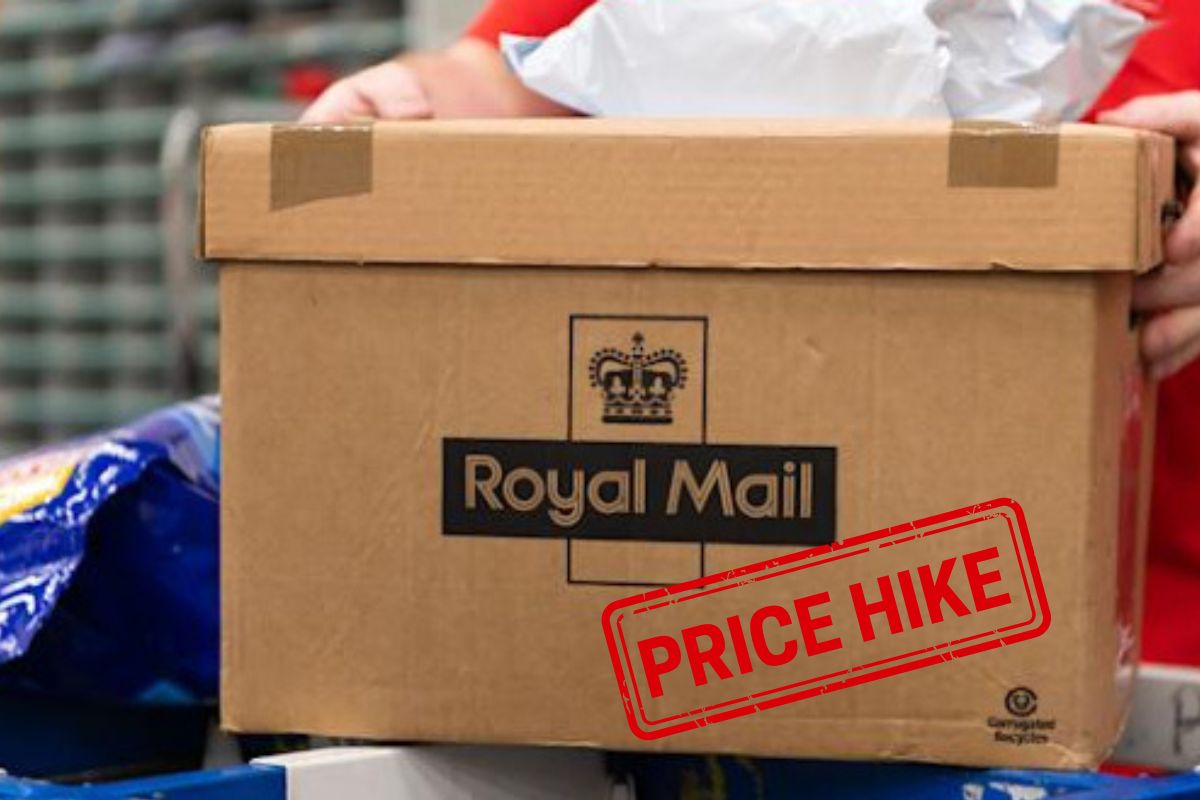Yet another Royal Mail price hike has been announced that will see small businesses paying significantly more for tracked parcel services from October 6th, despite the postal service’s catastrophically poor performance under foreign ownership continuing to deteriorate.
The latest price increases target Royal Mail’s popular Tracked 24® and Tracked 48® business services, with small businesses facing costs rises of up to £1.40 per parcel – just months after stamp prices were hiked to £1.70 and the company celebrated returning to profit by gutting public services.
For the thousands of eBay and Etsy sellers who rely on these services, the timing couldn’t be worse.
Royal Mail is demanding more money while simultaneously failing to deliver one in four first-class letters on time and announcing widespread delays across 20 UK postcodes due to chronic staffing issues.
The Royal Mail Price Hike That Hits Small Businesses Hardest
The October price increases will affect all weight categories for business account holders, with the cost of sending tracked parcels rising across the board.
| Parcel Weight | Royal Mail 24® August 2025 (excl VAT) | Royal Mail 24® October 2025 (excl VAT) | Price Increase |
|---|---|---|---|
| 1kg | £4.65 | £5.05 | +40p |
| 2kg | £4.85 | £5.25 | +40p |
| 10kg | £7.25 | £7.95 | +70p |
| 20kg | £13.55 | £14.95 | +£1.40 |
For businesses sending the minimum 1,000 parcels per year required to qualify for these services, the smallest 1kg parcels alone will cost an extra £400 annually.
Those sending heavier items or larger volumes will face even steeper increases.
Royal Mail 48® prices have also increased, though by smaller amounts, while a new “peak surcharge” will apply to all business parcels sent between November 17th and January 9th – because apparently charging more during the busiest shipping period of the year is now considered acceptable practice.
Paying More for a Service That’s Getting Worse
The audacity of Royal Mail demanding higher prices while their service standards collapse under foreign ownership is genuinely breathtaking.
Since Czech billionaire Daniel Kretinsky’s £3.6 billion takeover completed in April, customers have watched delivery performance plummet to new lows, with only 75.9% of first-class mail arriving on time and widespread delays affecting multiple UK postcodes due to staffing shortages.
Small businesses are now expected to absorb these cost increases while dealing with a postal service that has scrapped Saturday second-class deliveries, reduced service targets, and continues to miss basic delivery standards despite being fined over £16 million by Ofcom.
The cruel irony isn’t lost that Royal Mail is celebrating a return to £12 million in profits – achieved by cutting services rather than improving them – while simultaneously hitting the small businesses who depend on postal services with yet another round of price increases.
The Debt Mountain Driving Price Increases
These latest price hikes aren’t happening in isolation.
Kretinsky’s highly-leveraged takeover has saddled Royal Mail with approximately £5 billion in debt, creating enormous pressure to extract cash from customers while slashing operational costs.
The pattern is becoming depressingly familiar: deliberate service degradation to justify reduced targets, systematic service cuts to generate profits, and regular price increases to squeeze more revenue from captive customers who have little choice but to pay.
For the eBay sellers, Etsy shop owners, and small online retailers who built their businesses around affordable Royal Mail services, these increases represent another blow to already tight profit margins.
Many will be forced to either absorb the costs – reducing their own profits – or pass them on to customers through higher shipping charges, potentially making their products less competitive.
A Public Service Stripped for Private Profit
What we’re witnessing is the predictable consequence of turning essential public infrastructure into a vehicle for private profit extraction.
Royal Mail operated successfully for over 500 years as a public service, connecting every corner of Britain regardless of profitability.
Under foreign ownership, it’s being systematically transformed into a profit-maximising machine that prioritises debt payments over service quality.
The government’s promise to retain a “golden share” and protect the Universal Service Obligation rings increasingly hollow as customers pay more for worse service while the company’s new owners celebrate their profitable investment.
For small businesses already struggling with rising costs across the board, Royal Mail’s latest price hike represents another example of essential services being monetised at the expense of the people who depend on them most.
Want to know more about delivery companies and how they’re performing?
Check out our courier information section or browse our retailer guides to see which delivery companies your favourite shops are using.




